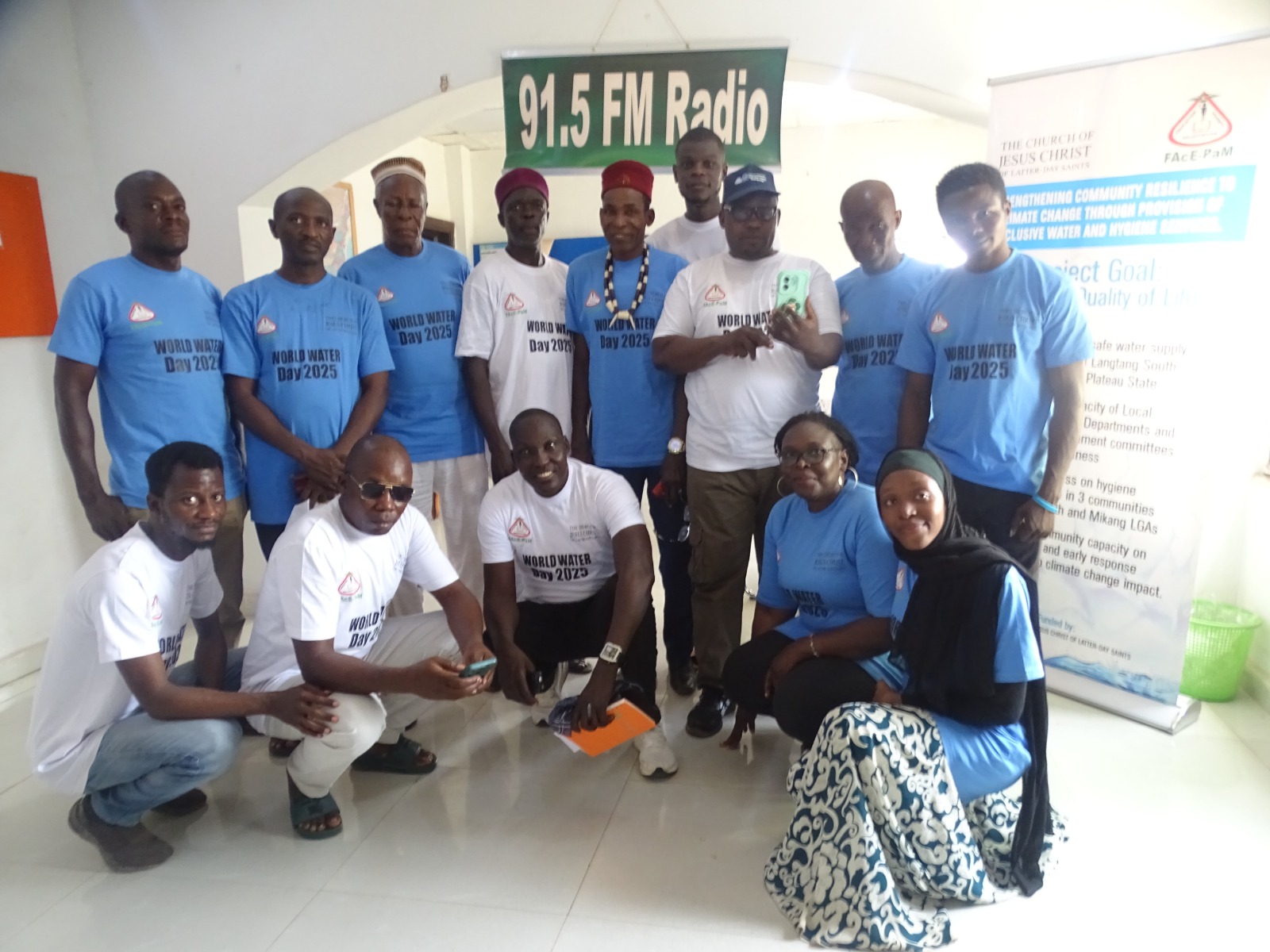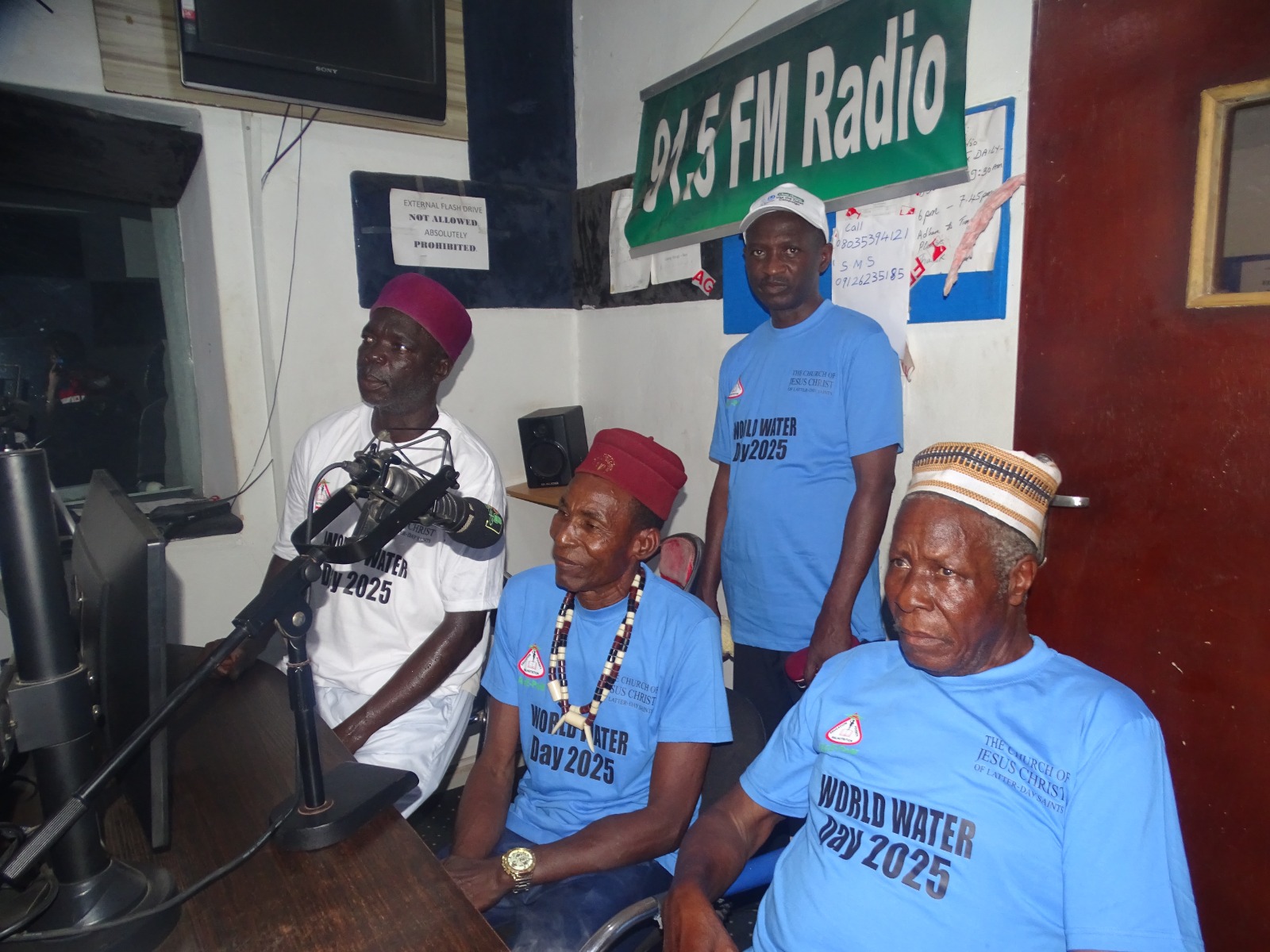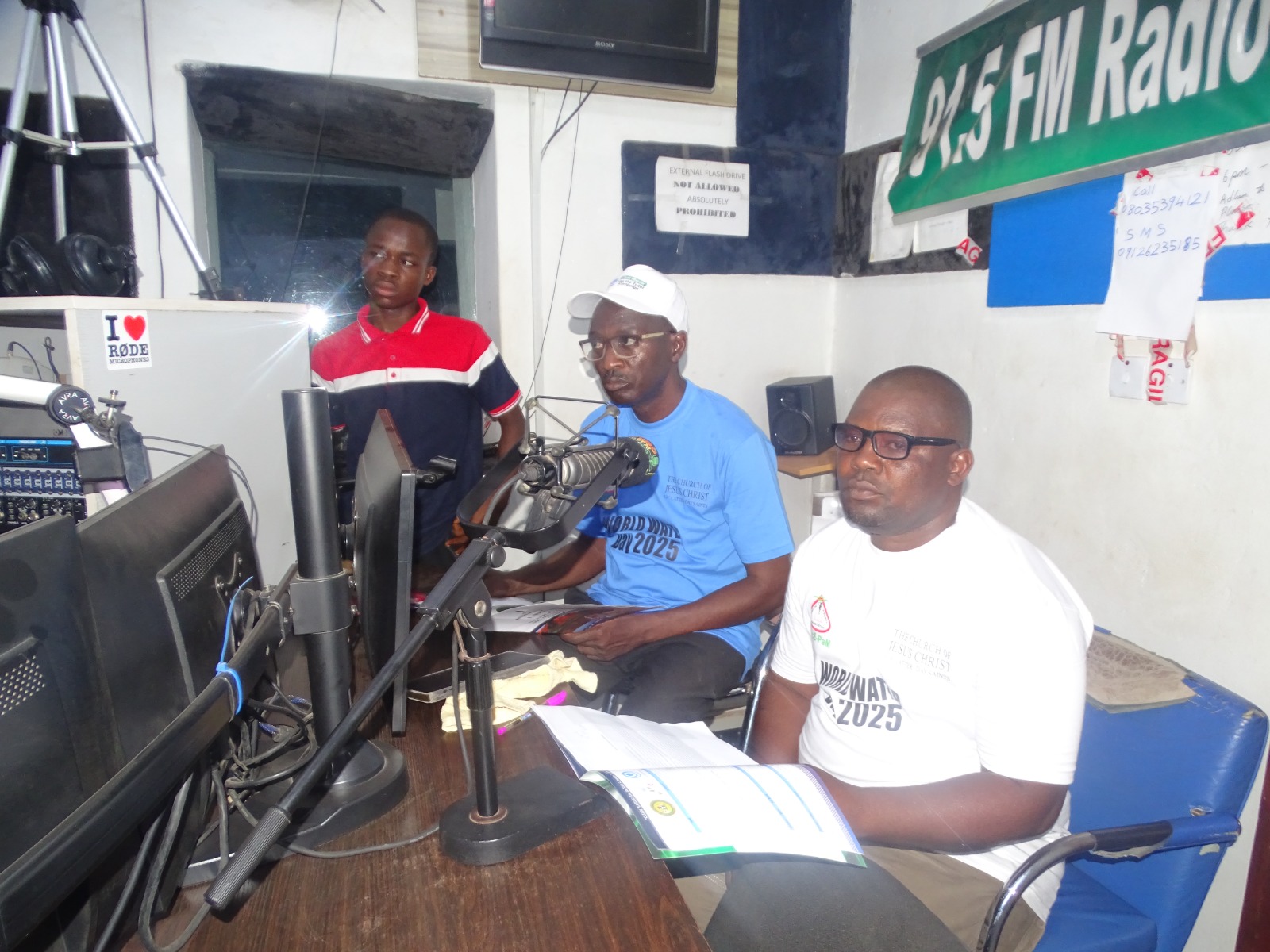In commemoration of World Water Day 2025, FAcE-PaM engaged stakeholders, and community leaders for a radio discussion aimed at raising awareness on water conservation and climate change. This year’s theme, “Glaciers Preservation,” emphasized the urgent need to protect glaciers as their rapid melting disrupts the global water cycle, leading to floods, droughts, and rising sea levels.

Although Nigeria does not have glaciers, the country faces climate-induced water challenges such as rising temperatures, reduced water availability, and increased agricultural and disaster risks. Speaking during the program, Mr. Wuyep Gwamman the WASH (Water, Sanitation, and Hygiene) Director Mikang LGA highlighted that despite government effort in constructing boreholes to ease the suffering of some communities; maintenance of these facilities becomes a problem within the community, hence increasing risk of facility failure. Community leaders also shared firsthand experiences of water shortages and how rising temperatures are affecting local agriculture and livelihoods.

FAcE-PaM’s radio program aims to educate communities on the importance of water conservation and climate change adaptation. The organization encourages individuals to take action by conserving water, reducing waste, and advocating for sustainable practices. By raising awareness about the impact of climate change on water resources, FAcE-PaM hopes to inspire communities to work together towards a more sustainable future. The organization also emphasizes the need for government and stakeholders to prioritize water conservation and climate change adaptation in their policies and programs.
Speaking in response to FAcE-PaM’s work in WASH, The communications Assistant Ms. Hajara said “FAcE-PaM, with funding from the Church of Jesus Christ of Latter-day Saints, is implementing the Strengthening Community Resilience to Climate Change through Provision of Inclusive Water and Hygiene Services Project. This initiative aims to provide sustainable solutions to water supply challenges in Mikang and Langtang South Local Government Areas of Plateau State.
The project’s overarching goal is to enhance the quality of life for residents in these communities by constructing energy-efficient boreholes and implementing capacity-strengthening initiatives that promote scalability and long-term sustainability.”
The session provided a platform for dialogue on the role of government, NGOs, and communities in addressing water-related challenges. The Program concluded with a call to action by Mr. Moses Bot the Director WASH Langtang South LGA for stronger collaboration between the government, civil society, and private sector to ensure sustainable water management in the face of climate change.
